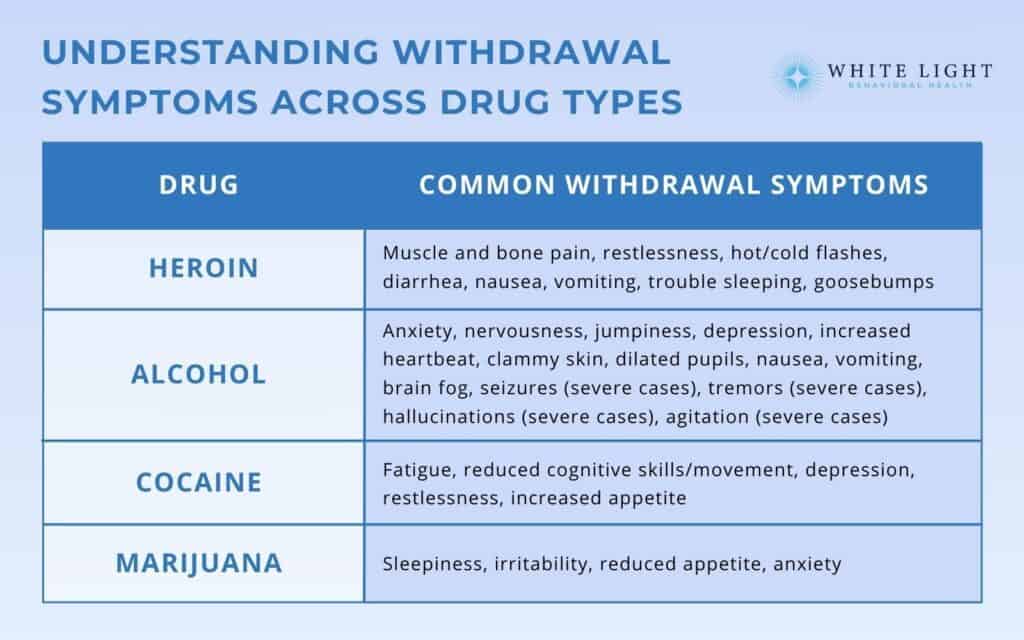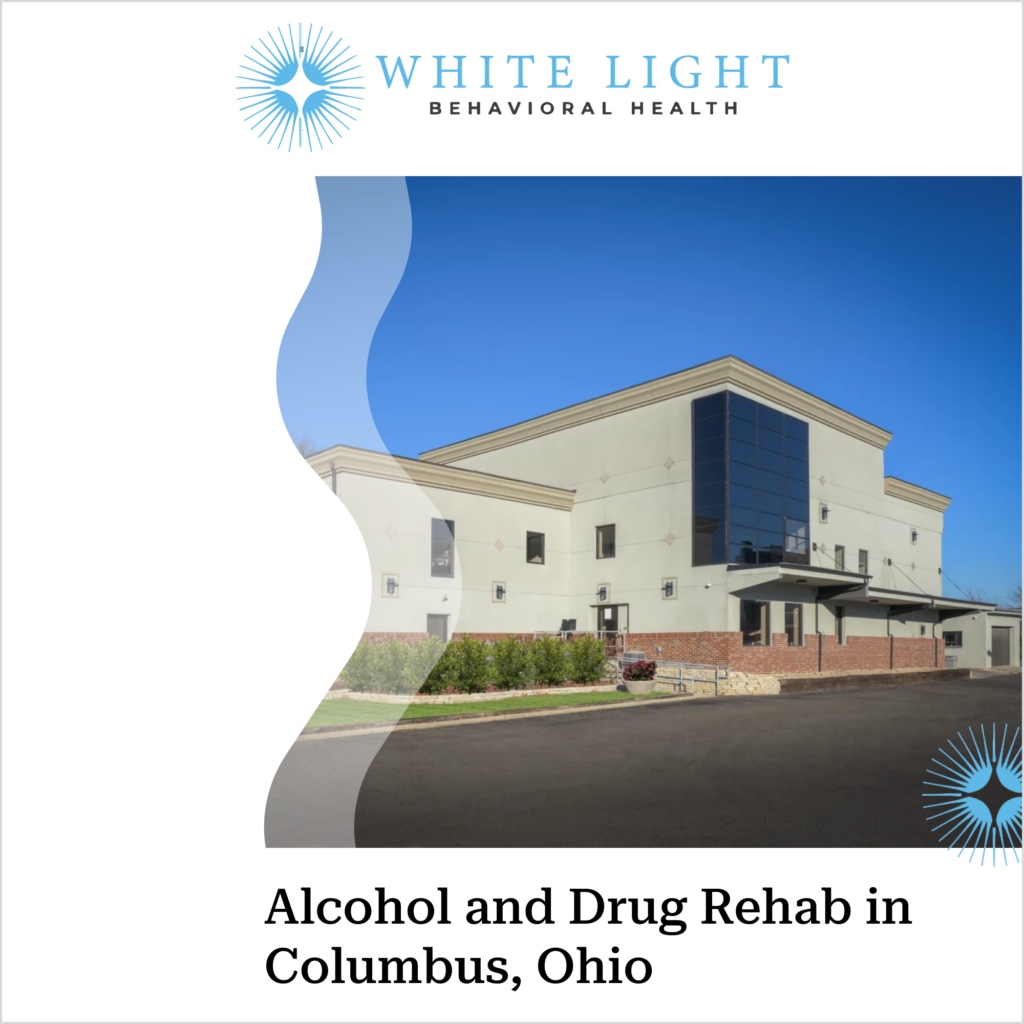Why is Withdrawal Painful?

Withdrawal is painful because drugs alter the brain’s natural chemical balance, and when removed, the nervous system becomes hyperactive. The brain adapts to the drug’s effects by changing neurotransmitter systems, so without the substance, these systems overcompensate, causing symptoms like sweating, physical pain, Intense cravings, anxiety, and hypersensitivity. Additionally, many drugs suppress natural pain responses, so withdrawal creates heightened pain sensitivity (hyperalgesia) that persists for weeks or months.
What Are The Symptoms Of Drug Withdrawal?
Drug withdrawal symptoms include physical signs like sweating, tremors, muscle pain, and gastrointestinal issues, along with psychological symptoms such as mood changes, cravings, and cognitive problems. Behavioral changes like agitation and social withdrawal occur as the brain adjusts to functioning without the drug.
Here are the symptoms of drug withdrawal in detail:
Did you know most health insurance plans cover substance use disorder treatment? Check your coverage online now.
Physical Symptoms
Physical withdrawal symptoms occur as the body adapts to functioning without the drug. Here are the common physical symptoms of a drug:
- Sweating and tremors – shaking, clammy skin
- Muscle pain and spasms – aches, cramps, tension
- Gastrointestinal issues – nausea, vomiting, diarrhea, stomach cramps
- Flu-like symptoms – chills, fever, headaches
- Sleep disturbances – insomnia, restless sleep, nightmares
Psychological Symptoms
Mental and emotional symptoms result from chemical imbalances in the brain:
- Mood changes – irritability, anger, anxiety, depression
- Intense cravings – strong urges to use the drug again
- Cognitive problems – difficulty concentrating, confusion, memory issues
- Dysphoria – general feelings of unease and dissatisfaction
Behavioral Symptoms
Changes in how people act and interact with others:
- Agitation and restlessness – inability to sit still or relax
- Social withdrawal – avoiding people and activities
- Difficulty learning new tasks – problems with coordination and skills
- Compulsive behaviors – repetitive actions or thoughts
What are the Withdrawal Symptoms Based on Different Drug Types?

Withdrawal symptoms based on different drug types include:
- Heroin Withdrawal: Symptoms of Heroin withdrawal include muscle and bone pain, restlessness, hot and cold flashes, diarrhea, nausea, vomiting, insomnia, and goosebumps.
- Alcohol Withdrawal: Symptoms of Alcohol withdrawal include nervousness, anxiety, jumpiness, depression, increased heartbeat, clammy skin, dilated pupils, gastrointestinal issues, brain fog, and, in severe cases, seizures, tremors, hallucinations, and agitation.
- Cocaine Withdrawal: Symptoms of Cocaine withdrawal include fatigue, reduced cognitive skills and movement, depression, restlessness, and increased appetite.
- Marijuana Withdrawal: Symptoms of Marijuana withdrawal include sleepiness, irritability, reduced appetite, and anxiety.
How Long Is A Drug Withdrawal?
Drug withdrawal lasts days to weeks for acute physical symptoms, but psychological effects persist for months. Most substances produce peak withdrawal symptoms within 2–3 days of stopping, with physical symptoms like sweating, nausea, and tremors resolving within 7–14 days for opioids, alcohol, and benzodiazepines. However, psychological symptoms such as depression, anxiety, and cravings often continue much longer, highlighting that drug withdrawal is not only a physical process but also a prolonged psychological challenge requiring ongoing support and treatment.
Contact us today to schedule an initial assessment or to learn more about our services. Whether you are seeking intensive outpatient care or simply need guidance on your mental health journey, we are here to help.
Are Detox and Withdrawal the Same?

Detox and withdrawal are not the same. Withdrawal refers to the uncomfortable symptoms your body experiences when you stop using drugs, while detox is the medical process and treatment used to safely manage those withdrawal symptoms. Detox is supervised care that helps you get through withdrawal with medications, monitoring, and support to prevent dangerous complications like seizures.
More Resources on Addiction:
What Is the Difference Between Detox and Withdrawal?
The main difference between detox and withdrawal is that withdrawal refers to the physical and psychological symptoms experienced when a person stops using a substance, while detox is the structured process that provides medical supervision and support to help individuals safely manage these symptoms. Detox programs create a controlled environment where healthcare professionals monitor health, alleviate discomfort, and offer emotional support during the withdrawal phase.
Is the Withdrawal Process Worth the Effort?
Yes, the withdrawal process is worth the effort. While withdrawal symptoms are uncomfortable and last from a few days to weeks, the benefits of stopping substance use far outweigh the pain of addiction.
Focusing on the positive outcomes helps you endure the discomfort. Feelings of wanting to leave treatment are natural, but staying committed leads to a fulfilling life.
Taking it one minute, hour, and day at a time is essential. At White Light Behavioral Health, we provide a safe, supportive environment with medical services, rest, and nutrition.
Stay positive and remember that your goal is full recovery, not just temporary sobriety. Improvement is gradual, but the discomfort will be worth it in the end.
How Do Withdrawals Feel?
Withdrawals feel like having severe flu symptoms combined with intense emotional distress and overwhelming cravings for the drug. Physical symptoms include sweating, shaking, nausea, muscle aches, and sleep problems, while psychological symptoms involve anxiety, depression, irritability, and difficulty concentrating. The intensity varies by drug type, but most people describe it as one of the most uncomfortable experiences they’ve ever endured, with symptoms that last from days to months, depending on the substance.
What Are Some Prescription Drug Withdrawal Symptoms?
Prescription drug withdrawal symptoms include a wide range of physical and psychological effects depending on the medication class. Common symptoms from opioid prescriptions include muscle aches, nausea, sweating, anxiety, and intense cravings, while antidepressant withdrawal causes “brain zaps,” dizziness, flu-like symptoms, and mood swings. Other prescription drugs like benzodiazepines, corticosteroids, and blood pressure medications cause dangerous withdrawal effects, including seizures, rebound hypertension, and severe anxiety when stopped abruptly.
Share This Post














